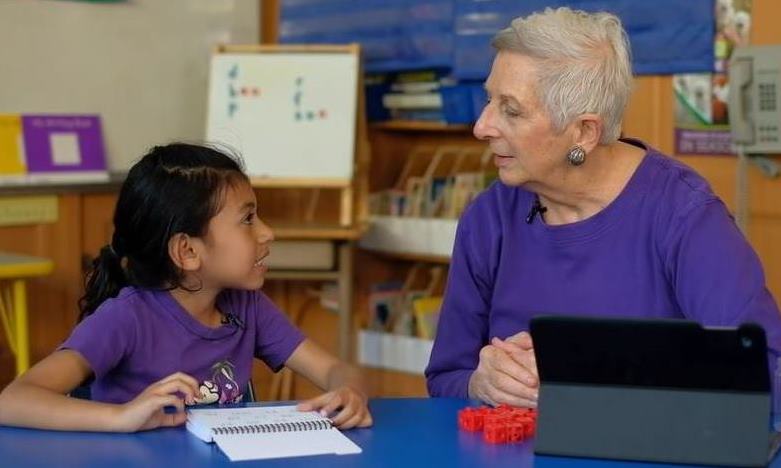The first month of school has always been a time to get to know our students. We build the classroom climate, establish routines, and learn to work together. It’s time well spent that pays dividends throughout the entire year. Now, after a difficult year of dealing with Covid, how we begin the school year is more important than ever. We need to learn as much as possible about each of our students so that we can plan and provide instruction that helps them grow and learn.
- Returning to Full-Time Face-to-Face Classrooms
Most teachers are coming back to the classroom after a year of some combination of face-to-face and remote instruction. It may be hard to imagine adding something new to our teaching repertoires at this time, but we feel this is exactly the time to embrace a fresh approach. We suggest beginning the year with one-on-one math interviews to find out about how each student reasons numerically. It’s math without paper and pencil and the interviews provide an essential foundation for planning instruction. Also, they’re a valuable tool for connecting with students personally, a way to build the relationships that are so important for supporting students’ mathematical learning. - About Learning Loss
We’ve read and heard many concerns about students’ learning loss, about the gaps and misconceptions that have resulted from a year of Covid. However, instead of focusing on what students lack or might have lost, we prefer to focus on who they are and what they know. When we focus on what students know vs what they don’t know, we have a foundation of understanding that helps us best prepare to serve them. To accomplish that, one-on-one interviews open the door to learning about students and can provide information not available in any other way. - The Limits of Written Assessment
We’ve also read and heard that we shouldn’t begin the school year by giving students assessments. We agree that paper-and-pencil tests can be a dismal way for students to begin a year of learning. However, finding out what students know and understand is essential. Sitting with students during interviews, giving them our full attention and interest, and listening to how they explain their reasoning when solving problems, has a huge payoff and can help us learn more than written assignments are able to provide. A downside of relying on students’ written math assessments is that their correct answers can hide confusion while their incorrect answers can mask understanding. In contrast, we’ve found that talking with students one on one, listening to how they reason, and giving them the time they need to think and revise their ideas provides more specific, accurate, and in-depth insights.
About Listening to Learn
We’re excited that Listening to Learn is now available from Heinemann. The interviews not only help us uncover how students reason numerically, they also provide a way to truly get to know our students as math learners. Do they persevere when solving math problems? Are they able to use reasoning strategies to compute mentally? Are they fluent with basic facts? Can they communicate and express themselves using mathematical language? Are they confident? Hesitant? Persistent? Flexible? Willing to take mathematical risks? Most importantly, from giving Listening to Learn interviews, we learn if our students have access to the reasoning strategies that are critical for their ongoing math success.
We hope that you will consider using Listening to Learn interviews with your students. This K–5 digital interview tool is useful for baseline information at the beginning of the year and also throughout the year to check on progress. Once you give the interviews a try, we think you’ll wonder how you ever did without them!

Visit Listening to Learn to watch Patty, Lynne, me, and other teachers interview students.
Lynne Zolli and I are the co-authors of Listening to Learn. We were part of the team that created Do The Math and have worked together on many other projects. Patty Clark and I have recorded several podcasts together relating to my most recent book, Welcome to Math Class. She is the former Senior Director of Services Content Development at Math Solutions and is currently leading services and development strategy for Heinemann Math.


Hello, please consider adding a presence on Instagram. THANK YOU!!!
Thanks for the suggestion. I’m active on Twitter but haven’t yet jumped on board with Instagram. I’ll reconsider.